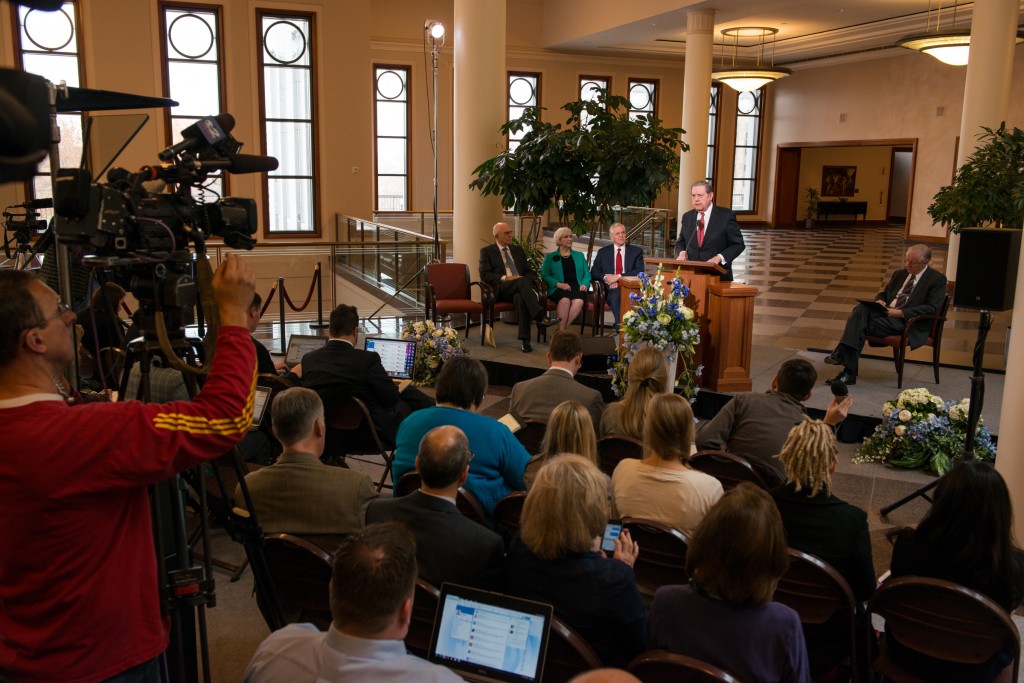
Utah works to end LGBT discrimination while upholding religious freedom
A bill moving rapidly through the Utah legislature, both houses of which have significant Republicans majorities, is designed to advance protections for LGBT persons while maintaining religious freedom for religious people and organizations. The bill, SB 296, Antidiscrimination and Religious Freedom sets into legislative form the widely-noted consensus-building statements of leaders of the Church of Jesus Christ of Latter-Day Saints (LDS—Mormons) at a press conference on January 27, 2015.
Many of those in favor of LGBT equality and also many who are committed to upholding historic moral positions on human sexuality are skeptical of statements and legislative efforts like these, arguing that one position or the other will, or should, win at the expense of the other. Yet our national tradition is to advance both equality and freedom, to fight discrimination while respecting dissenting views.
Notable elements of the bill: It prohibits employment and housing discrimination on the bases of sexual orientation and gender identity but excludes from the prohibitions religious organizations and the Boy Scouts. It specifically protects from firing and harassment an employee who, on the job or off, simply expresses his or her convictions about LGBT and other matters. It requires employers to accommodate the needs of transgender employees while expressly permitting sex-specific restrooms, showers, and dressing rooms.
Not covered in this bill: the hotly disputed topic of religious freedom in the provision of services. Is it wrongful discrimination for a religious wedding planner to decline to plan a lesbian wedding, even though secular planners are not required to assist with religious ceremonies? Should faith-based adoption agencies be free to continue to serve only married mother-father couples while other agencies serve LGBT couples and individuals? What services may doctors and pharmacists legally refuse to perform for which patients and customers?
As American society becomes ever-more diverse, ever-farther from a past (approximate and often shallow) Judeo-Christian moral consensus, the issue of how we can live together despite, and with, our differences, collaborating to serve the common good wherever possible, will become ever-more pressing. The LDS Church and Utah’s legislature are taking important steps to forging a path of mutual respect.
